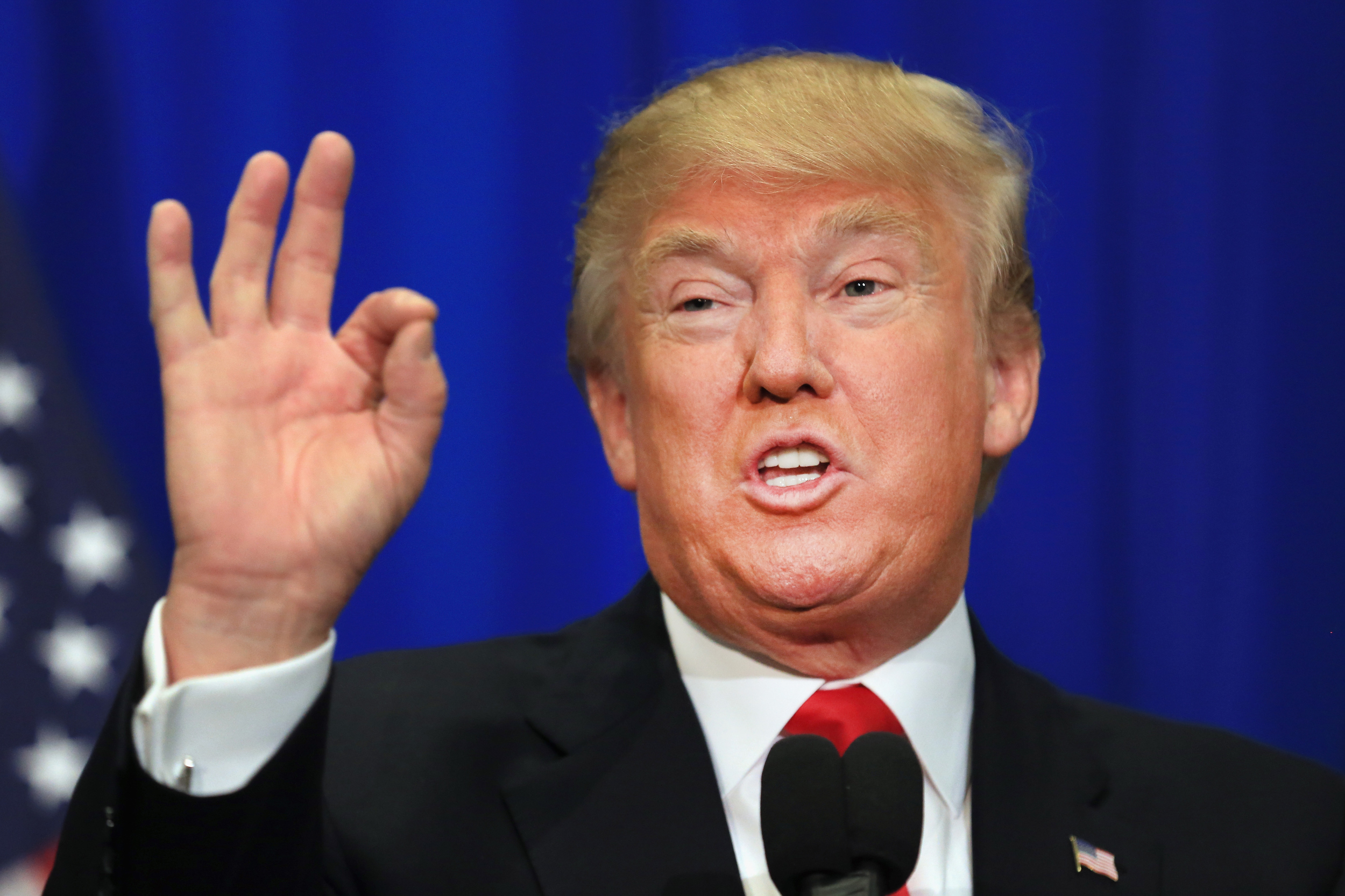By: Nathan Williams
America’s political dynasties have long dominated national politics, beginning in recent memory with the Kennedy family’s dominance during the latter half of the 20th century. Over the decades, political brands have emerged as meteorically as they have dissipated, each offering competing visions of their idealistic America. Two politically prominent families in particular have maintained their relevance over the last 30 years, each uniquely adaptive in its own regard. Interestingly, the 2012 presidential election marked the first time since 1980 when voters did not have the opportunity to select a ticket featuring a candidate with or who would establish a presidential pedigree. But in just a few short years, White House hopefuls will begin announcing their presidential candidacies. There’s speculation that America’s political landscape may be headed back in time. Our choice for president in 2016 could be between two of America’s most famous political dynasties.
It all began when California Gov. Ronald Reagan selected CIA Director George H.W. Bush from Texas as his running mate in the 1980 presidential election. After serving as Vice President for eight years, Bush, a New England-born patrician, was inaugurated as the 41st President of the United States in 1989. Bush inherited a steady economy and presided over the era that saw the end of the Cold War, but a recession during his reelection campaign birthed a new dominion when Arkansas Gov. Bill Clinton defeated the incumbent president. Two terms later, riding the wave of popularity from her husband’s administration, First Lady Hillary Clinton won a seat in the United States Senate in 2000 representing New York. That same year, George W. Bush – son of the former president who had been elected governor of Texas in 1994 –joined the president’s club. The two-family trend was on the verge of continuing in 2008 when Sen. Hillary Clinton pursued the Democratic Party’s presidential nomination to succeed Bush. But in one of the most surprising political upsets in history, Clinton lost the nomination to freshman Sen. Barack Obama – an inexperienced newcomer without political heritage. He later appointed the New York senator as his chief diplomat. Hillary Clinton served as Secretary of State from 2009 until 2013.
Welcome to two of America’s most intricate political dynasties – the Bush and Clinton families. They share an exclusive bond through the presidential fraternity, but each family represents a contrasting era in contemporary history. History will highlight the expansive economy stimulated by the “dot com” boom as well as international peace during the Clinton presidency. The Bush legacy remains relatively uncertain, but foreign involvement in the Gulf War and the War on Terror will likely cement the family’s place in history books.
Here’s where things get interesting. The next presidential election could feature an ironic match up – Hillary Clinton as the Democratic nominee and Jeb Bush as the Republican, essentially pitting the two dynasties against one another. The former Secretary of State is considered a field-clearer for her party’s nomination should she decide to run. She has earned record high approval ratings from her tenure as the country’s top diplomat, which may partially be attributed to the position’s apolitical nature. Jeb Bush, the former governor of Florida, is well respected in his party and offers a unique political gravitas. Though they inevitably carry their last name as their political brands, both Clinton and Bush are qualified candidates in their own right, offering a combined lifetime of public service. Both candidates could attract a cadre of supporters should they pursue their party’s nominations. Most significantly, their potential nominations would signal the direction their parties wish to take forward.
Hillary Clinton is undoubtedly considered one of the country’s most formidable female public figures in modern time. A recent survey by Washington Post-ABC News shows that among registered voters – both Republicans and Democrats – hold a strong 65 percent favorability rating of the former 2008 presidential candidate. Considering the hyper-partisan nature of national politics in recent years, Clinton is positioned to be a competitive candidate if she runs for president again. She was named the “most admired woman” in the world for the 17th time in the past 20 years this past December. She would benefit from a preexisting nationwide network of powerful donors who are ready for another presidential campaign in 2016, as well as ardent supporters who believe she can be the country’s first female commander-in-chief. Her political supporters aren’t wasting any time, including Democratic strategist James Carville, who notes that, “We owe it to Hillary to start putting the building blocks of her campaign together now,” referring to the Ready for Hillary SuperPAC that was formed to urge Clinton to run again. Though Carville calls Clinton the “prohibitive front-runner” for the Democratic nomination, she will likely face hurdles just like any other candidate. New from the 2008 presidential campaign, questions regarding the State Department’s handling of the attack on the American Consulate in Benghazi which left Ambassador Chris Stevens and three others dead could haunt her.
Jeb Bush is a rising star in the Republican Party who has been contributing to national conversations regarding both the immigration debate and the GOP’s future. He may be the leading heir to the Bush political dynasty, but the former governor touts an attractive resume independent of his political heritage. He embodies the brand of “compassionate conservatism” his brother, former President George W. Bush, constructed during his presidency from 2001-2009. A blunt assessment of the Republican Party’s poor performance with Hispanic voters makes Bush an even more attractive candidate, given his fluency in Spanish, his marriage to a Mexican-American woman, and his views on immigration. At a time when the GOP desperately needs a jolt of re-invigoration the solution may be in the brand that has produced the only Republican presidents since Ronald Reagan. Fred Zeidman, a prominent Texas-based political donor said, “If we are going to bring the Republican Party back to its glory, it is going to take a leader who understands the diversity and demographics of this country and is willing to show the leadership to stand up to the extremes of the party.” Jeb Bush could be that leader for Republicans, but there are dark clouds hanging over his potential candidacy. The obvious first is his family’s short-term legacy. Exit poll voters still blame George W. Bush for the economic problems facing the country. The second concern is with Jeb Bush’s political protegee popular Senator Marco Rubio, R-Fla., who is widely considered the front-runner for the GOP nomination in 2016. Senator Rubio, a Cuban-American, has been on the forefront of the “Gang of Eight” immigration coalition this past spring, essentially equating his political zeal with that of Jeb Bush. One thing is nearly certain – either Jeb Bush or Marco Rubio will pursue the Republican nomination given their potential with Hispanics, but both will not.
The compelling story line of a Clinton versus Bush presidential showdown in 2016 is intriguing and completely theoretical, but the possibility exists. Should the Democratic Party revert to the more moderate, proven brand rather than nominating a youthful newcomer like did in 1960, 1976, 1988, 1992, Clinton will likely become the nominee. Republicans have identified improving their standing among Hispanic voters as a targeted benchmark for electoral success, and if the primaries select another relatively moderate but dependable conservative brand, Jeb Bush will become a strong contender for the GOP nomination. The unlikely friendship between former presidents 41 and 42, George H.W. Bush and Bill Clinton, could become strained if the two dynasties face each other for the first time since the bruising 1992 election.
Multiple variables must align over the next few years if 2016 should bear both the Clinton and Bush names on the presidential ticket. Parties inevitably evolve and adapt to the changing world, but the Clinton and Bush families have managed to remain politically relevant over the past three decades. A Bush has been beaten by a Clinton, but a Clinton has only been beaten by an outsider in presidential contests. Is that would it would take again in 2016? Is 2016 a time when partisan ideologies match up to nominate both a Clinton and Bush as did in 1992? Will Hillary or Jeb even run? Should either decide against a presidential run, the torch will likely pass onto the next generation to heirs like Chelsea Clinton, daughter of Bill and Hillary Clinton, and George P. Bush, a current statewide candidate in Texas who happens to be the son of Jeb Bush and grandson of former President George H.W. Bush. We all have questions. Only time has answers.

